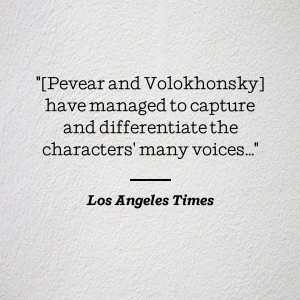Customer Services
Copyright © 2025 Desertcart Holdings Limited
Desert Online General Trading LLC
Warehouse # 7, 4th Street, Umm Ramool, Dubai, 30183, Dubai


📖 Unlock the Mind of a Genius!
Notes from Underground is a seminal work by Fyodor Dostoevsky, offering a deep dive into the psyche of its protagonist, a disenchanted former civil servant. This Vintage Classics edition not only preserves the original text but also enhances your reading experience with its elegant design, making it a must-have for literature enthusiasts and collectors alike.



C**S
Good book
I think that this is a book that you should read at least once. If you are a intermediate reader then this is probably for you
J**R
The first half is the result of the second
Near the end, after so much madness and insanity, Dostoevsky breaks above it for a moment and gives a beautiful, insightful, precious description of a father, mother and child:"The first married love will pass, true, but then an even better love will come. Then their souls will grow close; they'll decide all their doings together; they’ll have no secrets from each other. And when children arrive, then all of it, even the hardest times, will look like happiness; one need only love and have courage. Now even work brings joy, now even if you must occasionally deny yourself bread for the children's sake, still there is joy. For they will love you for it later; so you're laying aside for yourself. The children are growing - you feel you're an example to them, a support for them; that even when you die, they’ll bear your thoughts and feelings upon themselves as they received them from you, they'll take on your image and likeness. So it is a great duty. How can a father and mother fail to grow closer? People say it's hard having children. Who says so? It's a heavenly happiness! Do you love little children, Liza? I love them terribly. You know - there's this rosy little boy sucking at your breast, now what husband's heart could turn against his wife, looking at her sitting with his child! The baby is rosy, plump, pampered, sprawling; his little hands and feet are pudgy, his nails are so clean and small, so small it's funny to see; his eyes seem to understand everything already.He's sucking and clutching at your breast with his little hand, The father comes up - he'll tear himself away from the breast, bend back, look at his father, laughing - as if it really were God knows how funny - and then again, again start sucking. Or else he’ll up and bite his mother’s breast, if he’s already cutting teeth, while giving her a sidelong look: ‘See how I bit you!’ Isn’t this the whole of happiness, when they’re all three together, husband, wife, and child? A lot can be forgiven for those moments. No, Liza, one must first learn how to live, and only then accuse others!"
B**E
They find others stupid who, when they act
This book was written as a response to Nikolai Chernyshevsky's "What Is to Be Done?" and this presents a problem as many of the things the unerground man is railing about concern that book. The book is also written in two parts with the first part being the underground man speaking through a crack in the floor to people outside his cellar apartment and the second part, which takes place before the first part, are the actions that brought the underground man to the state he is in. The first part is quite confusing as the underground man is on a rant - he claims that Russia has been overly and wrongly influenced by European philosophies and cultures that do not apply to the unique Russian experience. His target is Chernyshevsky's program for revolution as espoused in his book. The underground man also rails against western philosophies and writings of Rousseau, Goethe, Fourier and George Sand. You can pick out the nub of his arguments by reading closely. In general the underground man and those following Chernyshevsky's philosophy rationalize to the point of inaction. They find others stupid who, when they act, act for all the wrong reasons whereas the underground man is incapable of acting at all.Ironically the underground man lives in a basement alone it is no utopia and is scattered in his thoughts to the point of being totally whack. The second story revolves around a school friend who is being assigned somewhere in Russia and his friends want to throw him a going away party. The underground man is disliked by all the attendees including Zverkov the officer going away but the underground man gets himself invited anyway. The whole thing ends badly of course with the underground man attempting to challenge Zverlov to a duel. When he goes to the whore house, he finds them gone and ends up spending the night with Liza a new recruit to the establishment. He talks her out of being a prostitute abut when she comes to his house to be with him he's totally changed his mind. In the end even Liza pities him and won't take his money - next stop the basement.Oddly the underground man is not a revolutionary at all. There's nothing there that makes hime even political so why he was acting out Chernyshevsky's political philosophy is beyond me. People who actually did act on Chernyshevsky's philosophy actually did some damage (or good depending on your political bent) including the assassination of Tsar Alexander II in 1881 and Lenin and the Bolsheviks who actually help rid Russia of Tsar Nicholas II as well as greatly diminishing the power of the Russian Orthodox church. Dostoevsky died in 1881 and never saw these things and would have strongly disagreed with those socialists and nihilists who, unlike the underground man, actually did something other than equivocate. Dostoevsky after being sent to Siberia for his radicalism turned to the Russian Orhodox church and embraced the tsar as the father figure of the Russian people.This book, however, distant the philosophies that drove it become is relevant because Dostoevsky was a great writer and this book represents the working out of problems and ideas he would carry through to his greates novels, Crime and Punishment, The Demons and The Brothers Karamazov. It's a tough 42 pages at the beginning but once through that the rest is a pretty easy read. I had just finished Pevear and Volokhosky's translation of War and Peace and I wanted to see how they did with Dostoevsky. It's probably the best book to begin reading Dostoevsky but it was worth the effort and there's never been a character quite like the underground man in literature.The second part of the book tells us how he got to where he is. This part of the story is a more traditional narrative. The three main stories told are about how the underground man goes about seeking revenge on an officer who offends him. He finally decides he will bump into him.
R**A
Nice book
Nice book
Trustpilot
1 month ago
2 weeks ago